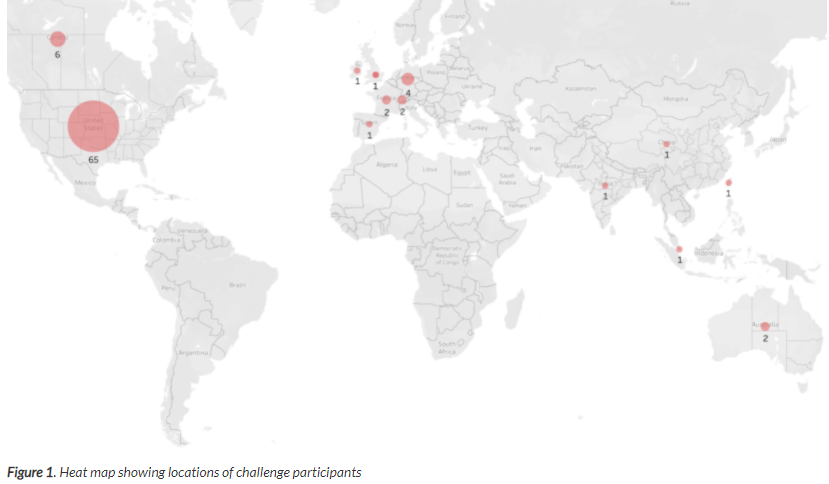The FDA announced that Buurma Farms Inc. (Willard, OH) recalled 320 boxes of its Plain Parsley after testing showed possible contamination with Shiga-toxin producing E.coli. The product being recalled is Buurma Plain (flat leaf) Parsley with a harvest date of August 30, 2021, from their Gregory, Michigan location. A random, routine regulatory sample collected on 9/7/21 at a customer’s distribution center by the Michigan Department of Agriculture and Rural Development (MDARD) tested positive for non-O157 STEC (Shiga-toxin producing E. coli) and reported 9/13/21. No illnesses have been reported to date. The product was sold and shipped in 30 count cartons to retailers in Ohio and Michigan between 8/31/21 and 9/3/21. It was also sold in 60 count crates to wholesalers in Illinois, Pennsylvania, New York, and South Carolina between 9/2/21 and 9/4/21. @ https://www.fda.gov/safety/recalls-market-withdrawals-safety-alerts/buurma-farms-inc-recalls-plain-flat-parsley-due-possible-health-risks?utm_medium=email&utm_source=govdelivery
ruth
Buurma Farms Inc. of Willard, OH, is voluntarily recalling 320 boxes of its Plain Parsley after testing showed possible contamination with Shiga-toxin producing E.coli. The product being recalled is Buurma Plain (flat leaf) Parsley with a harvest date of August 30, 2021 from their Gregory, Michigan
ruth
The Australian Competition & Consumer Commission (“ACCC”) reports that JB Nicholas and Son (Geeveston, Tasmania) recalls Premium Tasmanian Smoked Ham Meat products from the Australian marketplace due to suspected Listeria monocytogenes contamination. The recalled product is Premium Tasmanian Smoked Ham Meat products, packaged in 250 gram vacuum bags with a use-by date code of 16OCT21. The products were marketed, distributed, and sold in the Australian states of Tasmania and Victoria. The product has been available for sale at Hill Street Grocer Sandy Bay, Geeveston, Cygnet IGAs in TAS, and independent food retailers, including IGA in VIC. @ https://www.productsafety.gov.au/recalls/jb-nicholas-and-son-%E2%80%94-premium-tasmanian-smoked-ham-250g
ruth
FDA announces the 12 winners of the FDA New Era of Smarter Food Safety Low- or No-Cost Tech-Enabled Traceability Challenge. There were 90 submissions, with the winning teams representing the U.S., Canada, and New Zealand. There were 90 submissions received with teams from Australia, China, England, France, Germany, India, Ireland, Singapore, Spain, Switzerland, and Taiwan. A goal of the FDA’s initiative is to help achieve end-to-end. The primary goal of this challenge has been to encourage stakeholders, including technology providers, public health advocates, entrepreneurs, and innovators from all disciplines to develop traceability hardware, software, or data analytics platforms that are low-cost or no-cost to the end-user. @ https://precision.fda.gov/challenges/13/results?utm_medium=email&utm_source=govdelivery
A community for NGS assay evaluation
ruth
The FDA reported that Dole Fresh Vegetables, Inc recalled a limited number of conventional Curly Leaf Parsley cases. The product being recalled is Dole® Curly Leaf Parsley, with harvest dates of August 18, 2021, and August 19, 2021. A random, routine regulatory sample collected in Michigan tested positive for non-O157 STEC. No illnesses have been reported. The product was distributed to retail stores, wholesalers, and distributors in two pack sizes – 60-count (74 cases) and 30-count (39 cases). The Curly Leaf Parsley subject to this recall was distributed in FL, IA, MI, MN, and MO. This precautionary recall is initiated due to a positive non-O157 STEC result found on a single sample collected by the Michigan Department of Agriculture during routine random sampling. @ https://www.fda.gov/safety/recalls-market-withdrawals-safety-alerts/dole-fresh-vegetables-announces-precautionary-limited-recall-curly-leaf-parsley-due-possible
Dole Fresh Vegetables, Inc. is voluntarily recalling a limited number of cases of conventional Curly Leaf Parsley. The product being recalled is Dole® Curly Leaf Parsley, with harvest dates of August 18, 2021, and August 19, 2021. A random, routine regulatory sample collected in Michigan tested po



